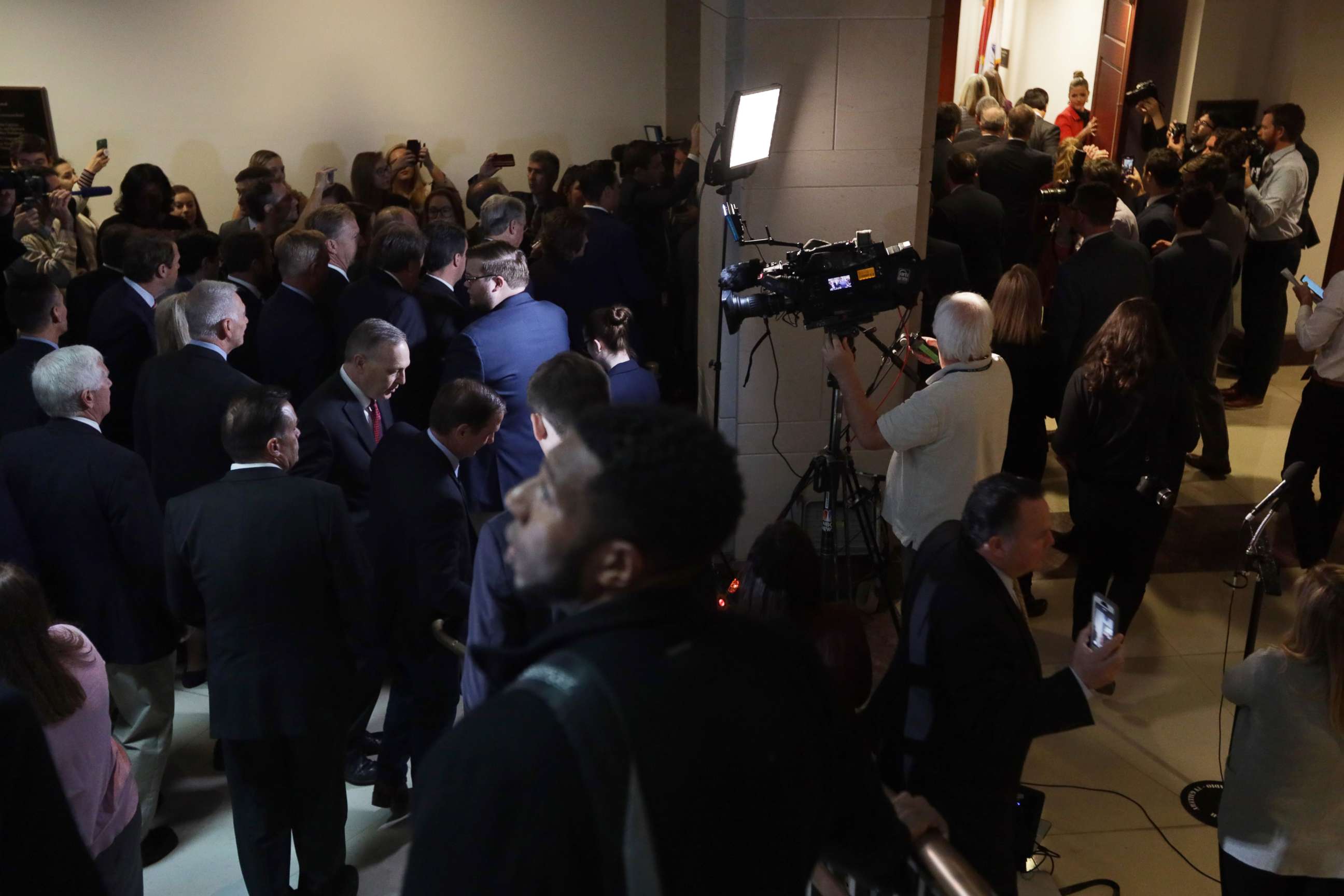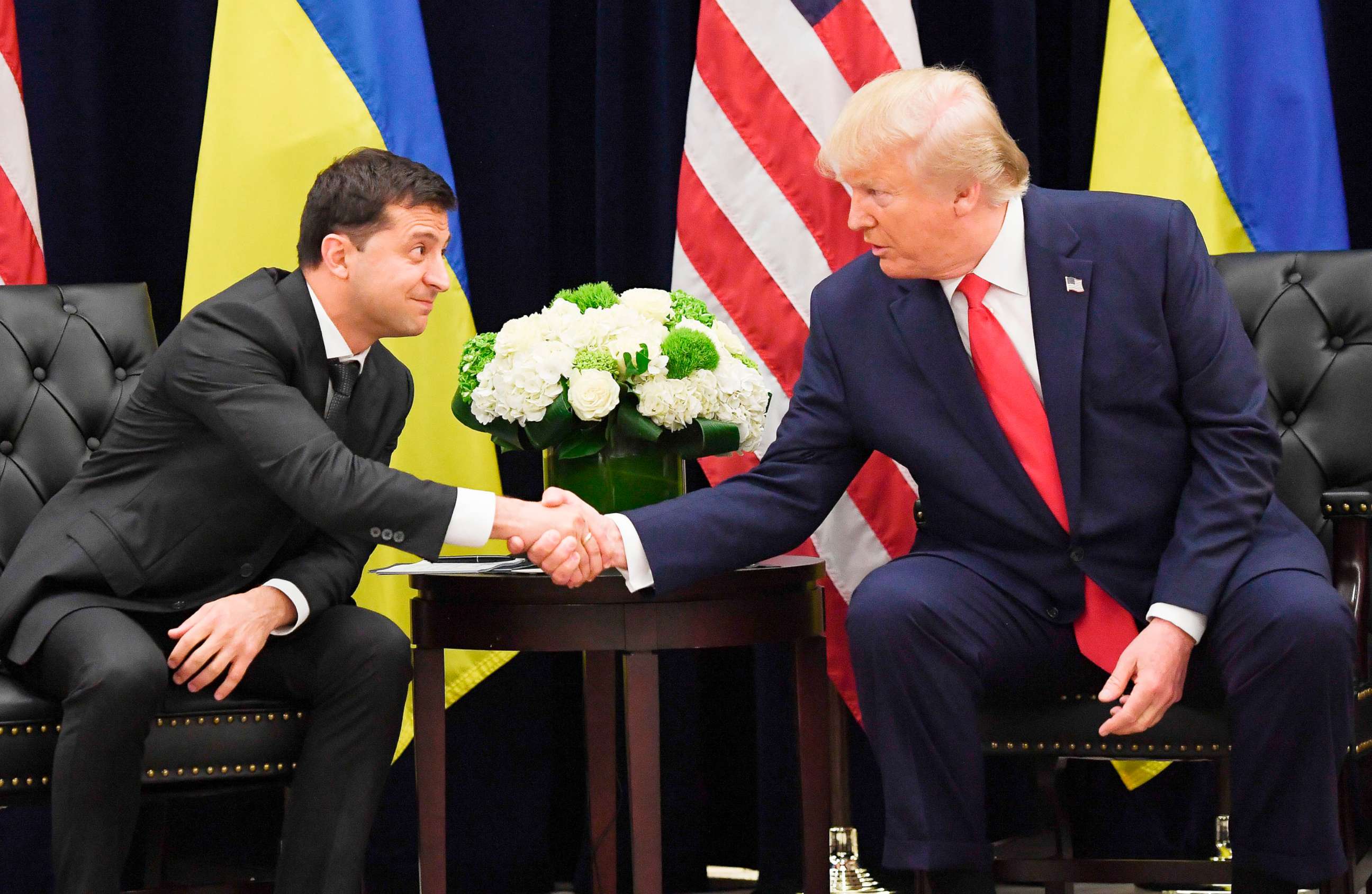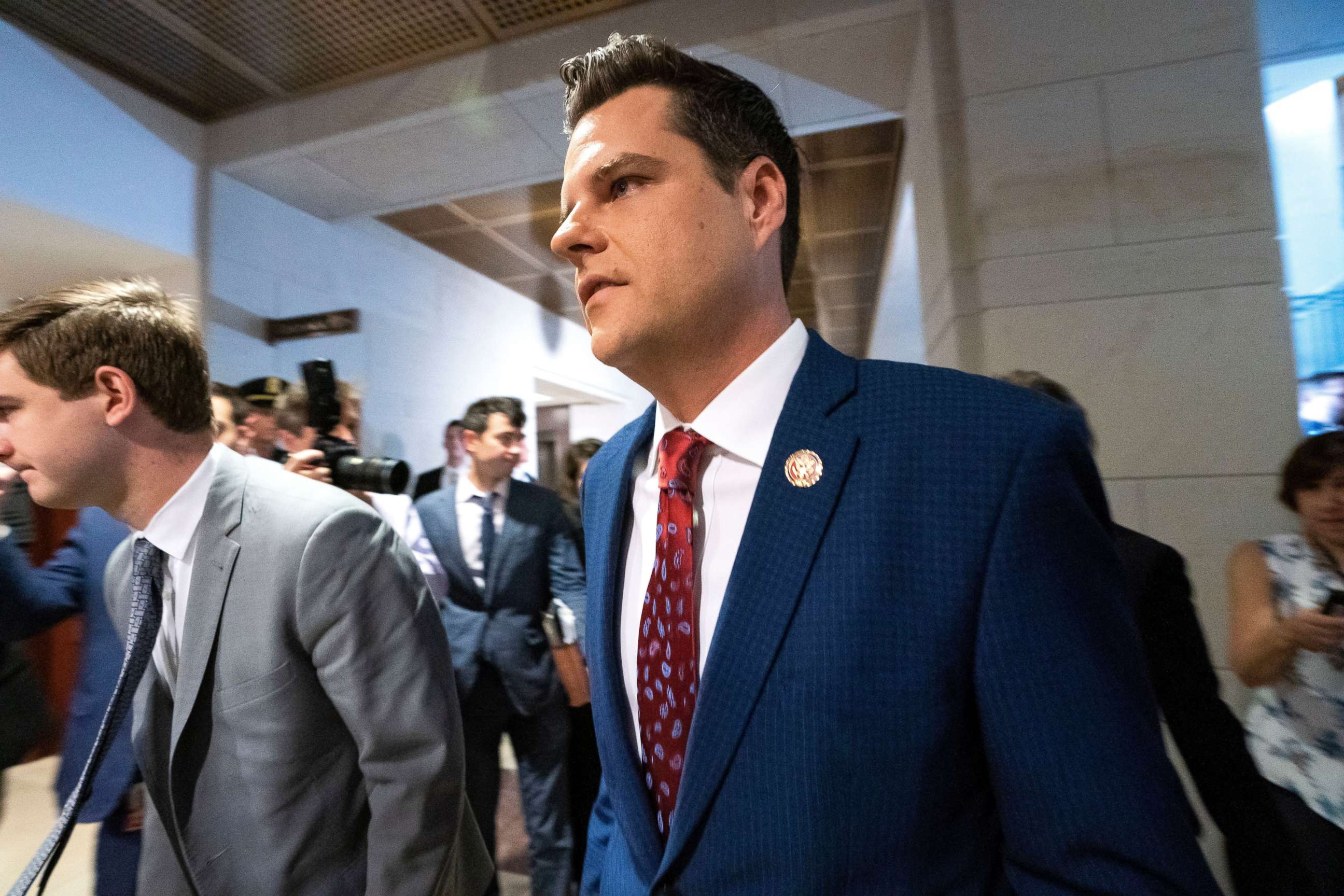Not exactly a dungeon with hyenas: 3 things to know about the Democratic-led impeachment inquiry
The most dramatic statements from Republicans are missing important context.
Republicans are calling the closed-door depositions in the ongoing impeachment inquiry "Soviet-style," describing one hearing room as a "dungeon" and a "super secret bunker" and comparing Democrats to scattering cockroaches and an "angry pack of rabid hyenas."
"I would say if we pulled this stunt -- you'd be eating us alive," Sen. Lindsey Graham, R-S.C., told reporters on Thursday of the ongoing impeachment inquiry being led by House Democrats.
But as with most of what happens in Washington, the most dramatic statements on the two dozen Republican lawmakers storming a deposition by a Pentagon official are missing important context.

Here are three things to know:
Republicans relied on closed-door testimony on Benghazi
Democrats insist that an investigation, which includes interviewing witnesses, doesn’t have to be public even if the trial would be. (In this case, the trial would be in the Senate, following a House impeachment vote.)
Closed-door depositions are also practical. With testimony kept secret, other witnesses aren’t tempted to adjust their answers. And, without cameras rolling, lawmakers are more likely to dispense with the theatrics and work more quickly.
That’s why in 2015, Republicans relied heavily on secret depositions in its investigation into then-Secretary of State Hillary Clinton’s handling of security in Benghazi, Libya, where armed militants stormed the U.S. mission there and killed the ambassador and others.
Trey Gowdy, the South Carolina Republican who led the Benghazi investigation, said in fall 2015 that his committee held some 50 interviews “the vast majority of them private,” in part because lawmakers are less likely to bicker without cameras present.

“The private ones always produce better results,” Gowdy told NBC’s “Meet the Press” in October 2015 of congressional investigations.
Earlier this week, House Speaker Nancy Pelosi issued a statement that could have come from a Republican four years ago: “This is about patriotism, not politics or partisanship,” Pelosi said.

Republicans insist impeachment is different.
“If this is an impeachment inquiry, then ALL Members of Congress, no matter what your party or committee assignment, need to be included,” tweeted Missouri Rep. Vicky Hartzler, who was among the Republicans who stormed the meeting.
There is a downside to secrecy
The downside to a closed-door approach is that Democrats, as well as Republicans, risk losing public support as information is cherry picked and selectively leaked to the press.
At the moment, Americans are only hearing details involving Ukraine if committee staff on either side quietly shares it with the media. That makes it much more likely that the answers provided to the public is only part of the story -- and over time, the public could lose interest or come to suspect the investigation is politically driven and therefore, less credible.
The latter would benefit President Donald Trump, who has said the allegations of a quid pro quo with Ukraine are without merit.

“Thank you to House Republicans for being tough, smart, and understanding in detail the greatest Witch Hunt in American History,” Trump tweeted Thursday.
Republicans are in the room and get to ask questions too
Rep. Matt Gaetz, the Florida Republican, had tried earlier this month to crash a witness deposition when the House parliamentarian asked him to leave.
Gaetz, who described Democrats as an “angry pack of rabid hyenas” in a Fox News interview on Wednesday, orchestrated this week’s protest because he said Democrats weren’t relying on any rules.

That’s not correct. Pelosi is relying on House-approved rules that outline how committees can interview witnesses and release information.
The rules say the committee chair and ranking minority member get to decide what information is made public.
And while Gaetz was not allowed in the meetings because he is not a member of any of the three committees conducting the impeachment inquiry, there are at least 45 Republicans who sit on those committees and are invited and given equal time to ask questions. That’s about 1 in 4 Republicans in the House.
The meetings are held in rooms specifically designed to handle sensitive or classified information.
Rep. Mark Meadows, R-N.C., a staunch ally of Trump, is among those in the room. He has criticized the impeachment inquiry as illegitimate but says both sides are given an opportunity to ask questions.
“There is a clock, with a timekeeper,” Meadows told The Wall Street Journal.
ABC News' Benjamin Siegel contributed to this report.




